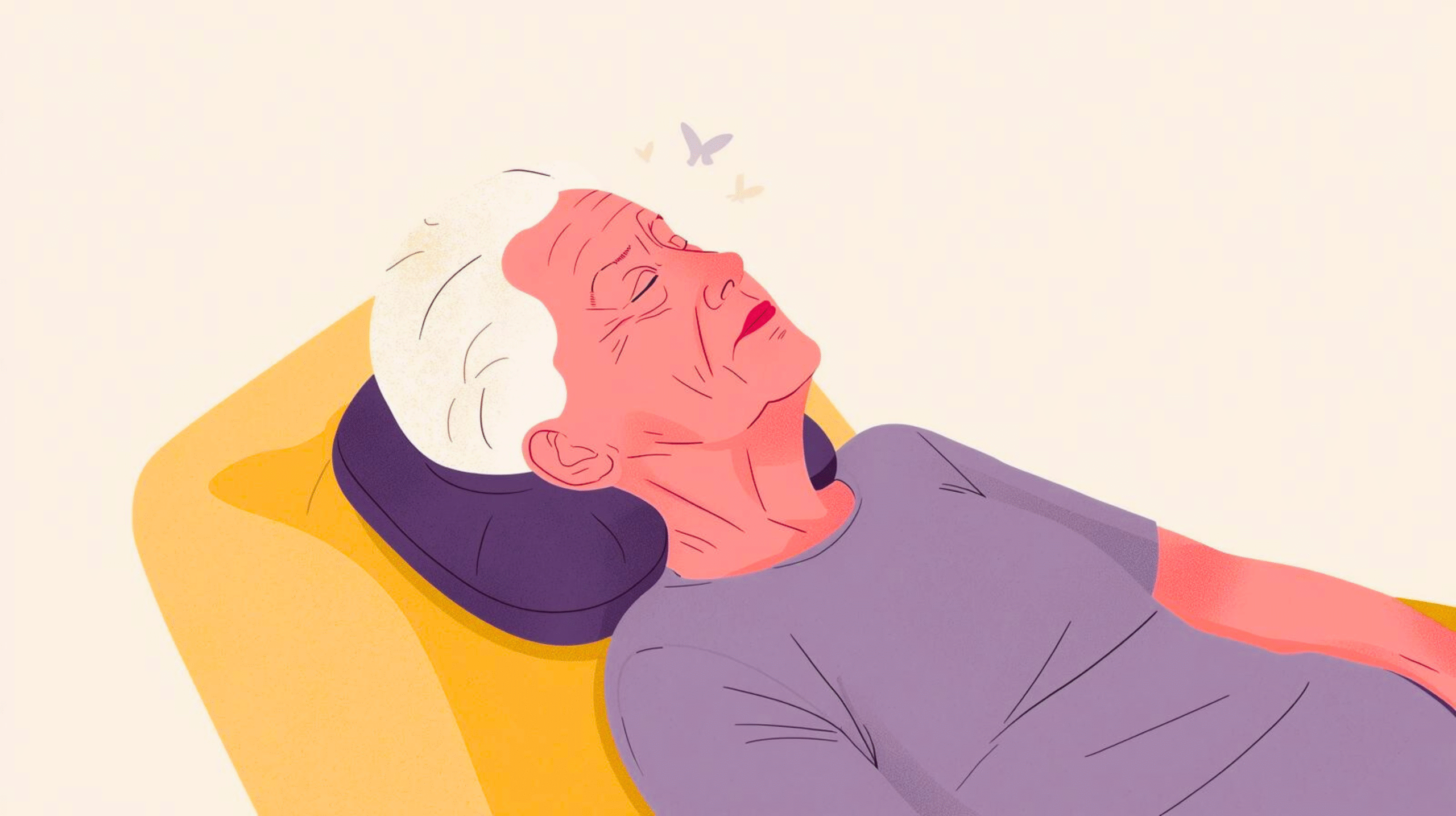As people age, maintaining proper neck alignment and spinal health becomes increasingly important. The cervical spine, which supports the head and connects it to the torso, is particularly susceptible to age-related changes. Loss of muscle tone, degenerative disc conditions, arthritis, and poor posture can contribute to discomfort, stiffness, and pain.
For elderly individuals, adequate neck support is critical not only for comfort but also for overall health. Proper support can improve sleep quality, reduce the risk of falls caused by dizziness or discomfort, and enhance daily functionality. Neck support products including cervical pillows, neck braces, ergonomic cushions, and adjustable recliners play a vital role in promoting spinal health, posture correction, and pain management.
This guide provides a comprehensive overview of the best neck support solutions for the elderly, including signs of inadequate support, product types, expert recommendations, and top picks for comfort and safety. By following these insights, seniors and caregivers can make informed choices to improve sleep, reduce pain, and maintain independence [1].
Why Neck Support is Crucial for the Elderly
Age-Related Spinal and Posture Changes
As we age, the spine undergoes natural degenerative changes:
- Degenerative Disc Disease: Intervertebral discs lose hydration and elasticity, reducing cushioning between vertebrae.
- Osteoarthritis: Joints in the cervical spine may become stiff and inflamed, causing reduced mobility and discomfort.
- Postural Changes: Muscle weakening, loss of height, and stooped posture can cause forward head posture, which strains neck muscles and ligaments.
These changes can make seniors more susceptible to neck pain, tension headaches, and poor sleep, highlighting the need for supportive pillows, cushions, and ergonomic furniture that maintain alignment [2].
Common Neck Issues in Older Adults
Elderly individuals frequently experience:
- Cervical Spondylosis: Degenerative changes in vertebrae and discs leading to stiffness and nerve irritation.
- Muscle Weakness: Reduced neck and upper back muscle tone can increase susceptibility to strain.
- Chronic Pain: Persistent neck and shoulder pain affects mobility, balance, and independence.
- Limited Range of Motion: Stiff neck muscles and arthritic changes restrict movement, making daily tasks more challenging.
Proper neck support can alleviate these symptoms and improve quality of life by providing gentle yet firm support during rest and activity.
Impact on Sleep, Mobility, and Daily Activities
Poor neck support can affect seniors in multiple ways:
- Sleep Disruption: Misalignment during sleep can lead to stiffness, poor rest, and increased daytime fatigue.
- Reduced Mobility: Neck pain can limit turning and flexibility, affecting activities like driving, reading, or exercising.
- Increased Risk of Falls: Discomfort and muscle imbalance may contribute to balance issues, raising fall risk.
- Cognitive Effects: Chronic pain and poor sleep quality can affect mood, concentration, and overall mental well-being.
By addressing these issues with proper neck support, seniors can experience improved sleep, enhanced posture, and better daily functioning.
Signs an Elderly Person Needs Better Neck Support
Identifying the need for neck support is the first step toward intervention. Key signs include:
Stiffness or Pain After Sleep
- Morning neck stiffness or discomfort is a common indicator of inadequate support during sleep.
Poor Posture or Slouching
- Forward head posture, rounded shoulders, or hunched back suggests insufficient spinal support.
Headaches and Upper Back Pain
- Tension headaches or pain radiating to the shoulders and upper back may result from misaligned cervical spine.
Reduced Neck Mobility
- Difficulty turning the head, limited flexibility, or discomfort when looking up/down signals poor neck support.
Recognizing these signs early allows for timely adjustments using cervical pillows, ergonomic cushions, or neck braces, reducing long-term discomfort and improving quality of life.
Types of Neck Support Options for the Elderly
Cervical Pillows
Cervical pillows are designed to maintain the natural curvature of the neck while sleeping. They are available in multiple materials and designs:
- Memory Foam vs. Fiberfill: Memory foam conforms to the neck and head for customized support, while fiberfill offers softer, more adjustable cushioning.
- Orthopedic Designs: Contoured pillows promote proper posture, relieve pressure on cervical discs, and reduce stiffness.
Benefits for the Elderly:
- Reduces neck pain and stiffness
- Improves sleep posture and quality
- Prevents further spinal strain
Neck Braces and Collars
Neck braces provide support and limit motion in cases of acute pain or injury.
- Soft Collars: Used for mild discomfort or temporary support.
- Rigid Collars: Provide firm stabilization, often recommended after injuries or surgery.
Use Case: Ideal for seniors recovering from minor neck injuries, arthritis flare-ups, or post-operative support under medical supervision.
Neck Support Cushions for Chairs
Chair cushions combine lumbar and neck support to maintain alignment during sitting.
- Ergonomic designs reduce forward head posture
- Memory foam or gel padding provides comfort during prolonged sitting
- Useful for office chairs, recliners, and wheelchairs
Benefits: Improves posture, reduces shoulder strain, and prevents stiffness from prolonged sitting.
Adjustable Recliner and Bed Headrests
Adjustable headrests allow seniors to customize neck angle for:
- Reading or watching TV in bed
- Reducing strain during napping
- Supporting neck and upper back during sleep
Benefits: Offers versatile support and improves comfort for seniors with varying mobility levels.
Choosing the Right Neck Support Product
Selecting the most suitable neck support for elderly individuals requires careful consideration of several factors. The wrong choice can worsen discomfort or fail to provide proper alignment, so it’s important to assess both physical needs and personal preferences.
Material
The material of the neck support determines comfort, durability, and thermal properties:
- Memory Foam: Provides customized support by contouring to the head and neck. Ideal for seniors with chronic neck pain. Gel-infused memory foam can help reduce heat retention.
- Latex: Naturally resilient and cooler than memory foam. Hypoallergenic and durable, but may feel firmer than some users prefer.
- Fiberfill or Down: Softer and adjustable but may not provide sufficient support for elderly necks with stiffness or arthritis.
- Polyurethane Foam: Lightweight and moderately supportive but may compress over time, reducing long-term effectiveness.
Firmness and Shape
- Firmness: Seniors with weak neck muscles or significant pain may benefit from medium to firm support to maintain spinal alignment.
- Shape: Contoured or orthopedic designs help cradle the neck and maintain the natural cervical curve. Traditional flat pillows often fail to provide sufficient support for aging spines.
Sleep Position
- Back Sleepers: Require medium-height pillows that support the neck without pushing the head forward.
- Side Sleepers: Need thicker, contoured pillows to fill the gap between the shoulder and neck.
- Combination Sleepers: Adjustable pillows with removable layers allow flexibility for multiple positions.
Age and Condition
Elderly users with arthritis, osteoporosis, or postural deformities may need specialized orthopedic pillows or additional support such as neck braces. Consulting a physician or physical therapist ensures the product complements medical care.
Personal Preferences vs. Orthopedic Advice
While comfort is important, seniors should balance personal preference with professional guidance. Some individuals may prefer softer pillows, but orthopedic advice prioritizes proper alignment and long-term spinal health.
Expert Recommendations for Neck Health in the Elderly
In addition to choosing the right product, lifestyle adjustments and daily practices are critical for maintaining neck health.
Sleep Posture Tips
- Keep the head, neck, and spine aligned while sleeping.
- Avoid overly thick pillows that push the head forward.
- For side sleepers, ensure the pillow fills the shoulder gap without tilting the head.
Daily Stretching and Physical Therapy
- Gentle neck stretches improve flexibility and reduce stiffness.
- Strengthening exercises for neck and upper back muscles support spinal alignment.
- Physical therapy may be recommended for seniors with chronic neck issues or postural problems.
Role of Ergonomic Furniture
- Chairs, recliners, and car seats with proper lumbar and neck support help maintain posture during sitting.
- Adjustable headrests and recliners allow for customized positioning to reduce strain.
- Ergonomic setups reduce the risk of developing new neck problems over time.
Consistent Monitoring
- Track neck pain, stiffness, and sleep quality to evaluate if the neck support is effective.
- Adjust pillow height, firmness, or material as needed to maintain comfort and alignment.
- Regular medical check-ups help identify age-related spinal issues early.
Betterhood’s Top Pick: PosturePro Car Seat Cushion
For elderly individuals seeking comprehensive neck and back support during daily activities, betterhood’s PosturePro Car Seat Cushion [3] is a recommended solution. It combines ergonomic design with high-quality materials to provide comfort, posture correction, and spinal alignment.
Key Features
- Ergonomic Design
- Contoured to support both the lumbar spine and cervical region.
- Maintains natural spinal curvature, reducing neck and upper back strain [4].
- Memory Foam Construction
- High-density foam provides firm yet comfortable support.
- Conforms to the body’s shape, reducing pressure points and stiffness.
- Adjustable Headrest and Cushion Layers
- Seniors can customize neck and back support according to personal comfort.
- Helps maintain proper alignment during prolonged sitting, driving, or reclining.
- Versatile Use Cases
- Ideal for car travel, office chairs, recliners, and home use.
- Portable design allows seniors to take support wherever needed.
Benefits for the Elderly
- Reduces neck and back pain from prolonged sitting
- Promotes correct posture, preventing slouching and forward head position
- Enhances comfort during driving or extended periods of sitting
- Supports independence by allowing seniors to sit safely and comfortably
Final Thoughts
Neck support is a critical component of elderly comfort, spinal health, and overall well-being. Proper support helps reduce pain, improve sleep quality, and maintain mobility, which are all essential for a higher quality of life.
Choosing the right product involves considering material, firmness, shape, sleep posture, and individual health conditions. Incorporating ergonomic furniture, daily stretching, and professional guidance enhances the benefits of neck support products [5].
Products like cervical pillows, neck braces, support cushions, and adjustable recliners provide practical solutions to age-related neck issues, while innovations such as the PosturePro Car Seat Cushion offer versatile, high-quality support for daily activities.
By combining appropriate products, posture habits, and expert advice, elderly individuals can manage neck discomfort effectively, prevent further complications, and enjoy greater independence and comfort in daily life.
People are also reading:
- Home Remedies for Body Pain Relief Naturally
- Muscle Pain Causes
- Ergonomic Hacks for Frequent Ride-Share Drivers
- Can Your Sitting Posture Cause Hip Misalignment
- Fast, Targeted Relief: The Science Behind Pain Relief Gel
- Knee Joint Pain Causes
- Knee Cap Uses
Frequently Asked Questions:
1. Why is neck support important for elderly people?
Proper neck support helps maintain cervical spine alignment, reduces pain, improves sleep quality, and prevents postural issues that can impact mobility and overall health.
2. How can elderly individuals improve sleep posture?
Using cervical pillows or ergonomic cushions, maintaining a neutral spine, and avoiding overly thick or soft pillows can improve sleep posture. Adjustable beds and headrests can also help.
3. What are signs that an elderly person needs better neck support?
Signs include morning stiffness, chronic neck or shoulder pain, headaches, poor posture, limited neck mobility, and discomfort during prolonged sitting.
4. How does poor neck support affect overall health in seniors?
Inadequate support can cause chronic pain, sleep disturbances, reduced mobility, muscle strain, and increased risk of falls, all of which affect quality of life.
5. Are there specific products recommended for elderly neck issues?
Yes. Cervical pillows, orthopedic neck cushions, adjustable recliners, neck braces (as advised by a doctor), and ergonomic seat cushions like PosturePro are highly recommended for seniors.
References:
- WebMD. (n.d.). Neck pillows and support for seniors. Retrieved from https://www.webmd.com/seniors/neck-support
- Spine Health. (2020). Cervical spine problems in older adults. Retrieved from https://www.spine-health.com/conditions/neck-pain/cervical-spine-problems-elderly
- Betterhood. (n.d.). PosturePro Car Seat Cushion for elderly support. Retrieved from https://www.betterhood.com/posturepro
- American Physical Therapy Association. (2019). Ergonomic tips for seniors. Retrieved from https://www.apta.org/patient-care/geriatrics
- National Institute on Aging. (2021). Aging and spine health. Retrieved from https://www.nia.nih.gov/health/spine-health























